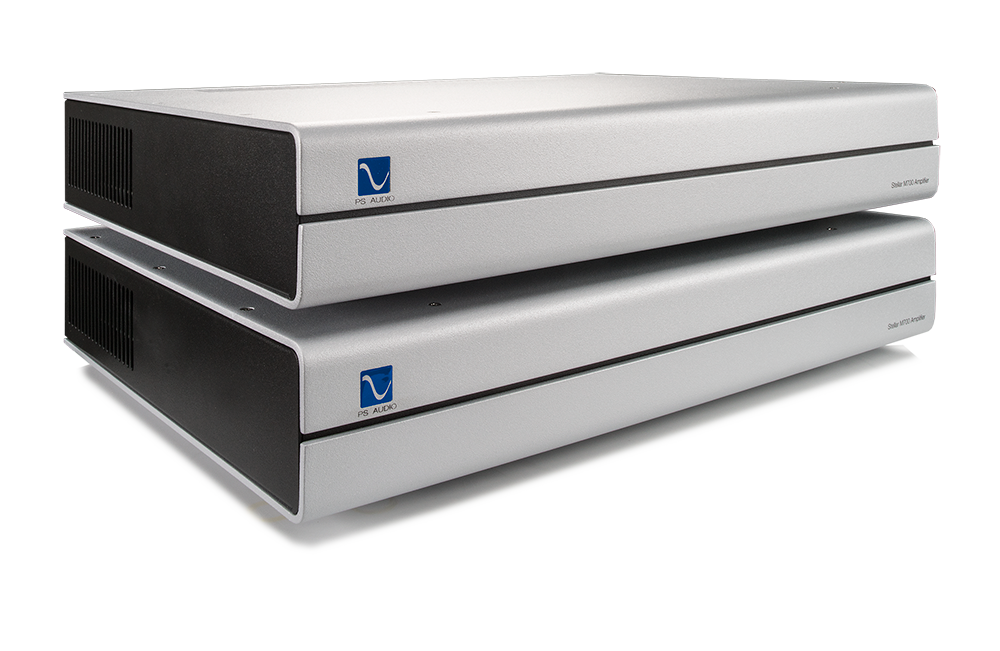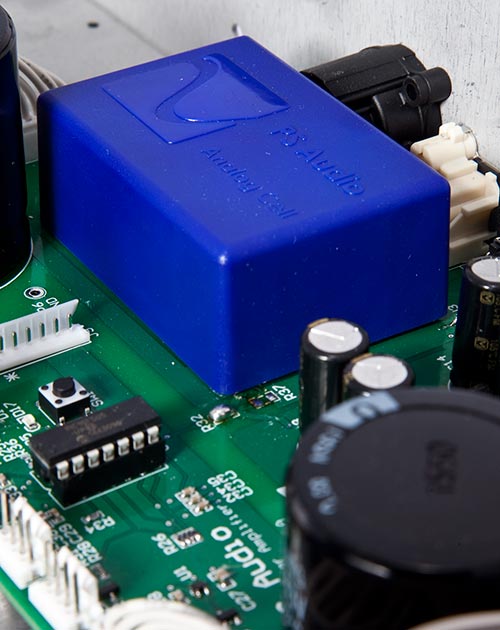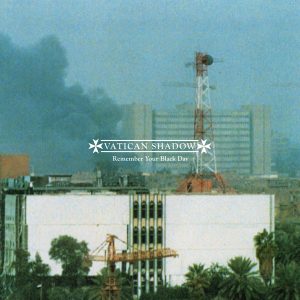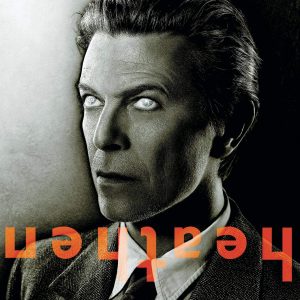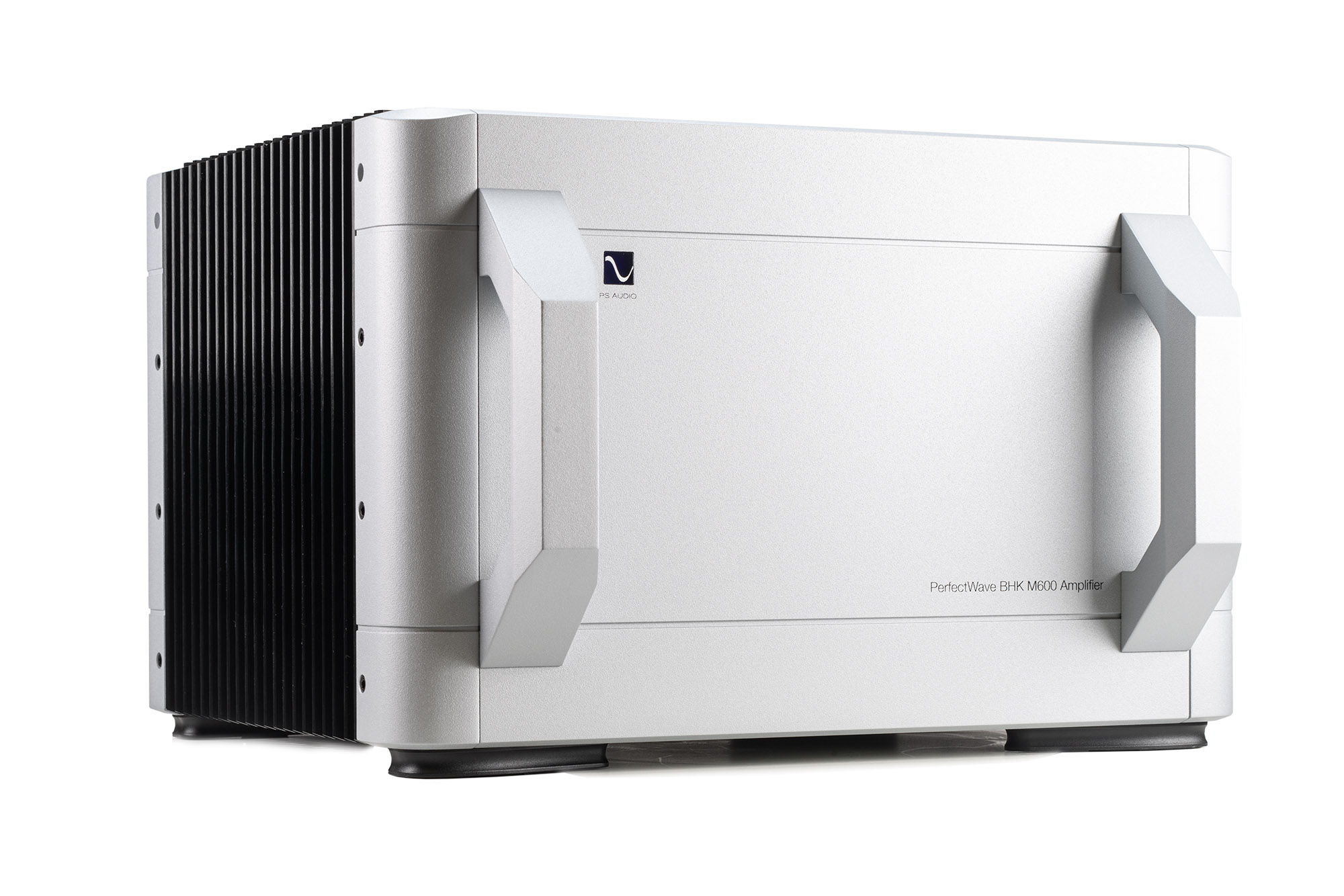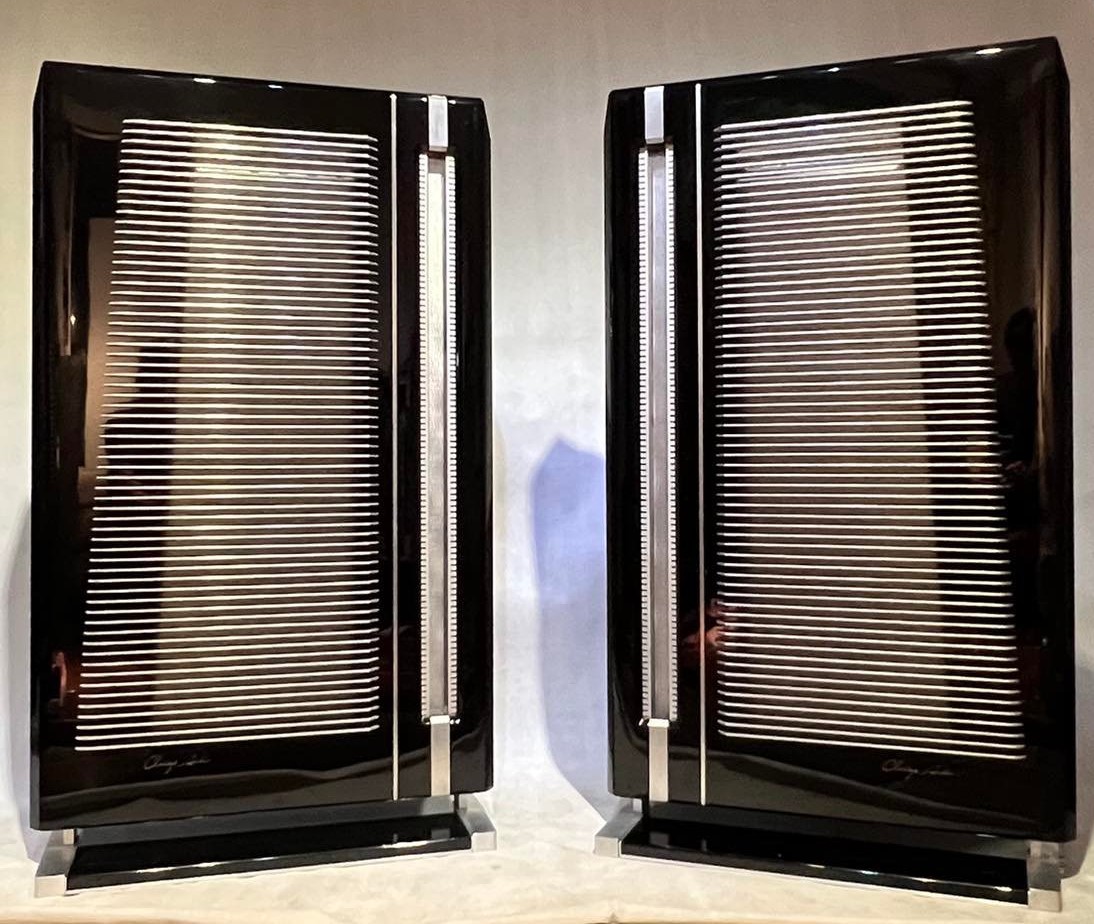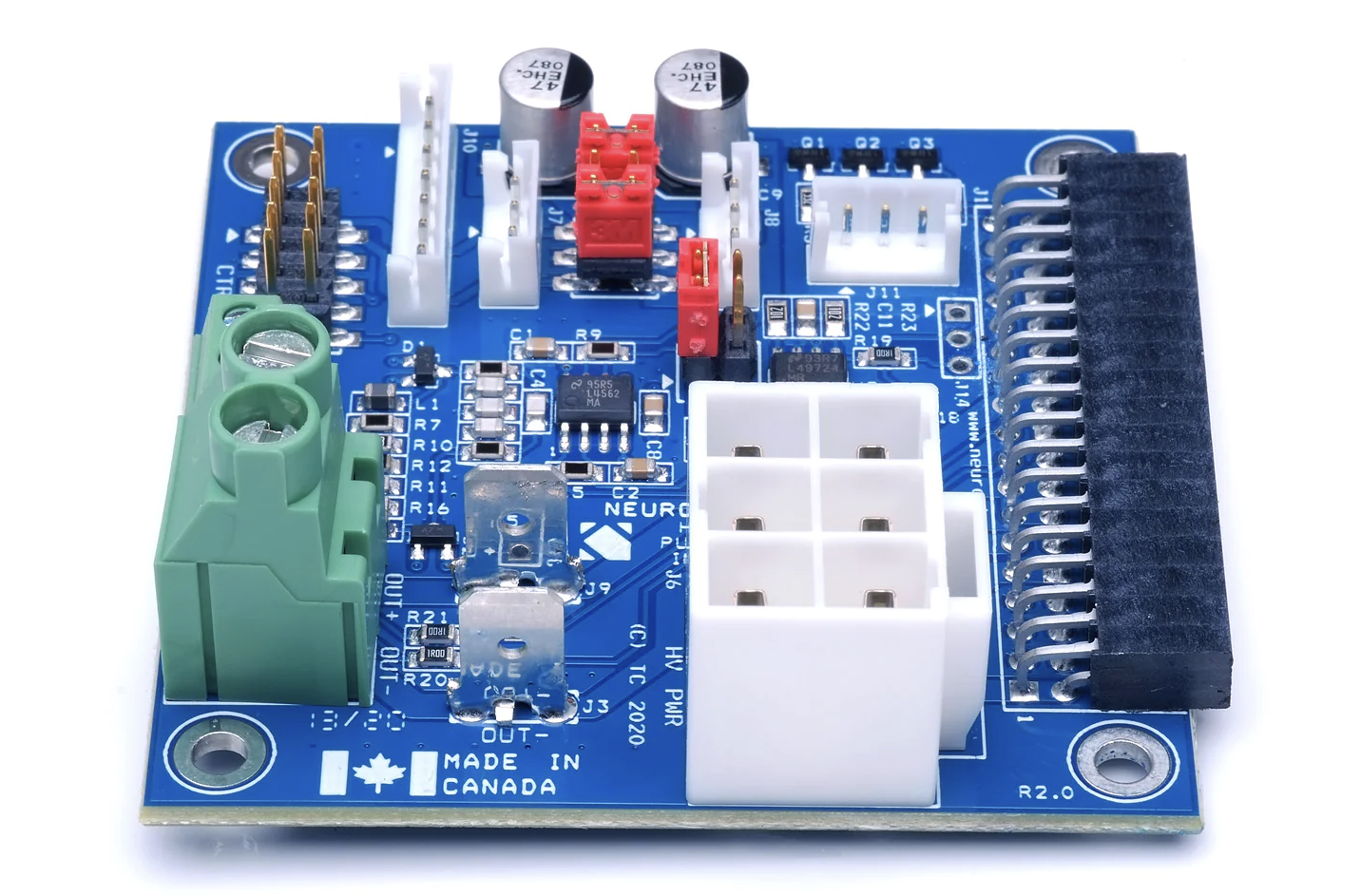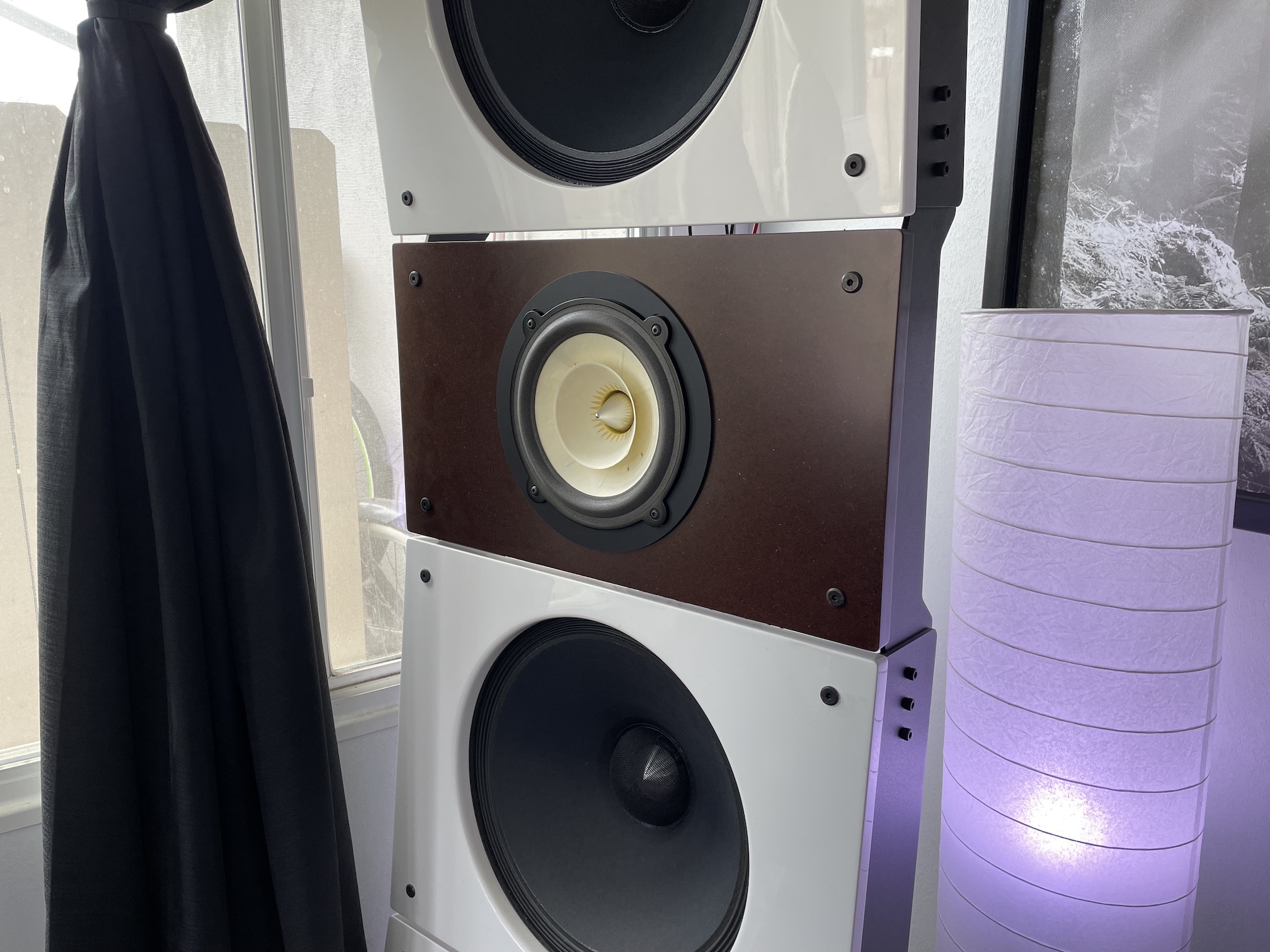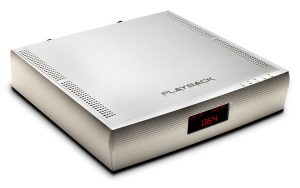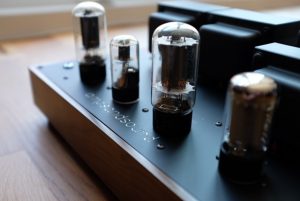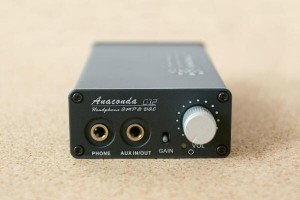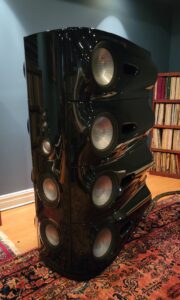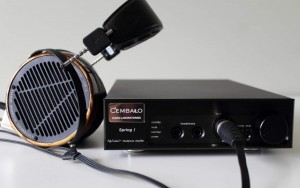Gosh, it sees that lately I've been inundated with Class D topology amplifiers. Several here for review, pending. Each one with their own style and power. The latest lightweight contenders come from PS Audio, a company well versed in the high end audio scene (and very well respected). Now, when I hear the words PS Audio, I immediately think of a power device, as I've had several in and out of my system. Their regenerators are out of this world great, and one of the best upgrades one can carry out on their system. So, they gotta know something about building a power supply, right?
I've probably said this before but worth repeating, the heart behind a great amplifier is the power supply. In fact, the PS Audio Stellar M700 uses technology from ICE (specifically the 700AS1), paired along with their own in-house design input stage using their latest "Analog Cell" design, as well as their own switching power supply. It's quite surprising how much power and linearity come from just 3 circuit boards. Initially I was quite surprised when I went to pick the boxes up from my doorstep, I thought, "No way are there amplifiers in these boxes. No way can these put out power down into an impedance of 2 Ohms." The PS Audio M700 has a full footprint but is slim, measuring 17"W x 2.8"H x 12"D and weighing 27 pounds.
Initially, I reached out to Bill Leebens of PS Audio to ask if they would work on my 1 Ohm Apogee Scintillas (AKA "Amp Killers"), and he said, "Well, I don't see why not, let's give it a shot!" That was all I needed to hear, I connected them up to the speakers, then up to a Mytek Brooklyn DAC (acting as a line stage and volume control), and pressed play. I couldn't believe my ears! The bass coming from the Scintillas was unlike anything I've ever heard. The highs were a little smeared, but these amps were cold and brand new, they definitely needed some breaking in. I left them playing music for several days and every day when I would actively listen I could hear them starting to open up. So, up went the volume. I got up to about 98dB in loudness before they started clipping. I thought, "Well, that was a fun experiment, I can't expect them to put out enough current for such a harsh load, but I have to commend these little guys for going so far and never shutting down!"
Ok – so that experiment was over, but definitely impressive. I then connected them to a more suitable load, a pair of Scansonic MB-5's (you know, the lower end line of Raidho DNA speakers). This is where I was really able to hear the amplifiers real attributes: astonishing and accurate bass, with sparkling highs that had an almost tube-like sound. How did they accomplish this in such a small footprint for such an amazing price? Well, zero bells and whistles, low cost casing, and their own in-house designed Analog Cell is how I think it was done. See, this is more of a hybrid amplifier, if anything as the input stage uses Class-A MOSFETs in a zero feedback balanced design, with proprietary characteristics mimicking the sound of a vacuum tube. Fascinating for sure. This technology alone places the amplifier much higher in sound quality than any other competing amplifier of its price range for sure.
David Bowie's album Heathen (SACD) starts off with "Sunday," which is a perfect introduction; a mix of live percussion, electronics, and vocals is quite fun only with the right amplification. Hearing David's voice in the background and then the foreground voiceovers, multi-tracking, and then that amazing drum solo, when it kicks in... it made me want more! It's a shame that portion of the song is also near its end. Then onto Vatican Shadow's "Jet Fumes Above the Reflecting Pool" on the album Remember your Black Day is another great track to show off transients and macro dynamics (and that lovely kick drum). This was a natural segue to Rival Consoles "Phantom Grip" from their latest album Persona. This track demands the best in amplification to take full control of the speakers and pressurize the room, all while keeping a coherent sound and blending off to the upper frequency drivers. What an engaging and cathartic experience.
Then to move on to something a bit more somber, listening to "Prelude" by SVLBRD on the album Stratus. This is more of an ambient track, great at low volumes. The M700's excelled here especially, when then bassline kicked in. I could really hear the dynamics here, even at low volumes where I was really able to enjoy and become immersed into the experience.
In the end I believe this is the top of the line in its price range. Nothing comes close—the sheer amount of power and sound quality that comes from these little chassis is nothing but pure engineering magic. Kudos to the PS Audio team for coming up with such a simple yet ingenuous design. In my world of 30 somethings, there are a ton of people interested in high-end audio but don't want to spend 10k on an amplifier. Well, this is the amp that I recommend every time. Comes in your choice of silver or black.
Stellar M700 Mono Amplifiers
Retail: $2998/Pair
PS Audio




